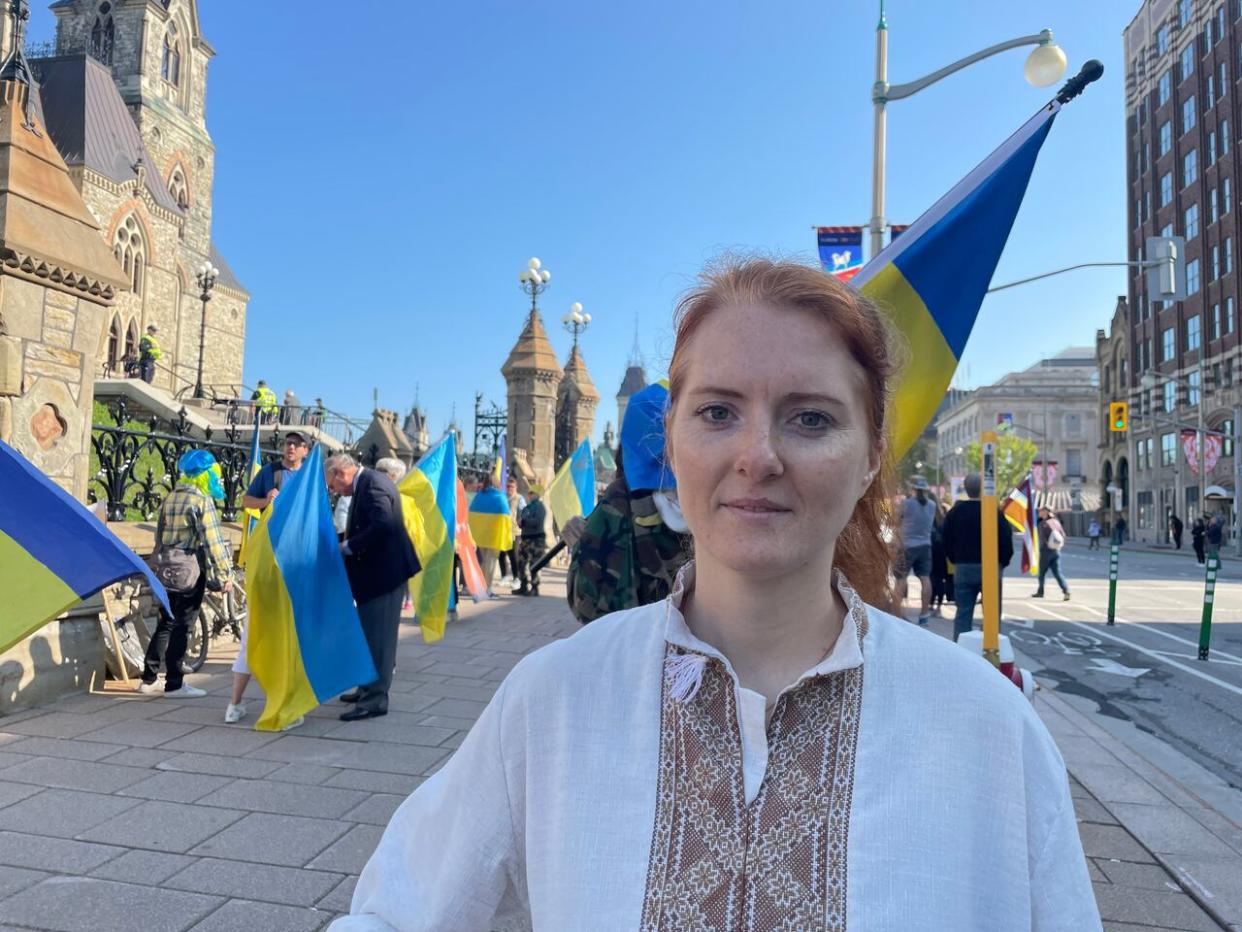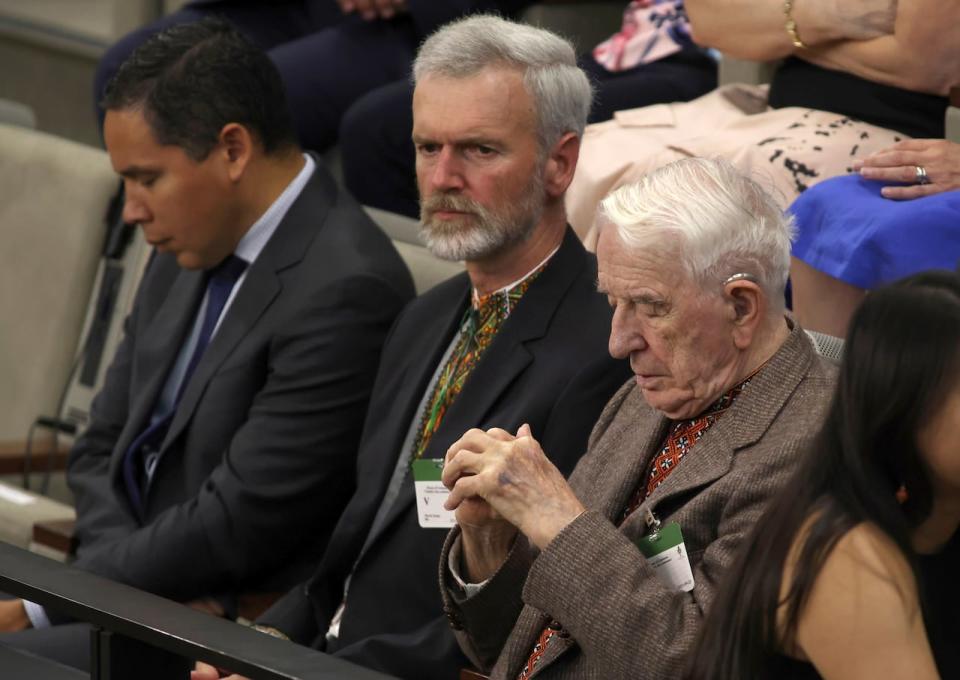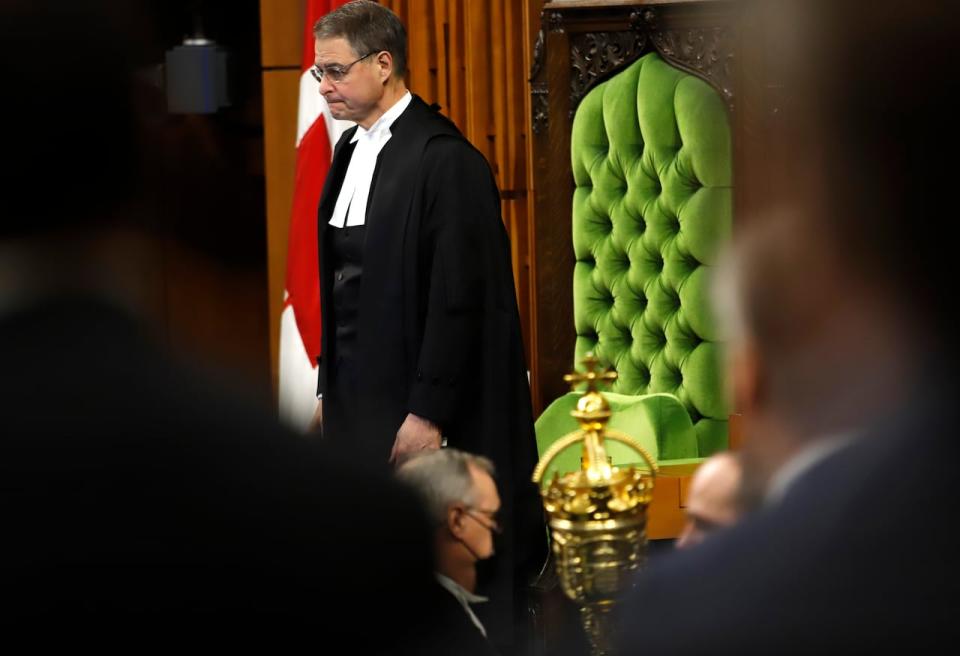Ukrainians reckoning with 'complexity of history' after Hunka affair

Some members of the local Ukrainian community say there's "broken trust" after a former Ukrainian solder who fought in a Nazi division was honoured in Parliament during President Volodymyr Zelenskyy's visit to Ottawa — and want an apology of their own.
"This is just so, so disappointing," said Jane Kolbe, an active member of the community in Ottawa.
Now-former House of Commons Speaker Anthony Rota invited veteran Yaroslav Hunka, one of his constituents from North Bay, Ont., to sit in the gallery during Zelenskyy's address on Sept. 22.
Hunka received a standing ovation from MPs, the prime minister and Zelenskyy himself.
Days later, it was revealed that Hunka was part of the First Ukrainian Division, also known as the Waffen-SS Galicia Division or the SS 14th Waffen Division — a voluntary unit under the command of the Nazis during the Second World War.
Members of Canada's Jewish community have called it a "humiliating debacle."
Rota resigned as Speaker last week, and Prime Minister Justin Trudeau publicly apologized to the Jewish community for what he called a "deeply embarrassing" moment in Canadian history.

Ukrainian-Canadian Yaroslav Hunka, 98, was a former soldier fought who fought alongside the Nazis. He was invited by former Speaker Anthony Rota to the House of Commons last week and received a standing ovation during Zelenskyy's visit. (Patrick Doyle/The Canadian Press)
As the incident made international headlines, some members of the Ottawa region's Ukrainian community said it's been "difficult" to watch it overshadow Zelenskyy's important visit.
Many are "still trying to absorb and understand" what happened, Kolbe said.
"It is baffling because [in] the diaspora, there's so many heroes to recognize," she said. "But this really wasn't the time to recognize heroes. This was the time to honour and reflect on President Zelenskyy's speech."
Kolbe said it was important that Trudeau apologized to the Jewish community, and believes the resulting "broken trust" with the Ukrainian diaspora in Canada means they deserve one, too.

Supporters of the Ukraine stand in front of Parliament Hill during Zelenskyy's visit. (Patrick Doyle/The Canadian Press)
'History has a lot of complexity'
Juliia Baranova was among the hundreds of Ukrainians on Parliament Hill the day of Zelenskyy's visit and said she was "very concerned" about the Hunka incident.
"For me personally, it also shows that history lessons are not learned," Baranova said. "And eastern European countries' history has a lot of complexity."
Reports suggest as many as 2,000 Ukrainian members of Adolf Hitler's Waffen-SS were admitted to Canada after the war.
Historians have documented how soldiers like Hunka were trained at SS facilities in Germany, swore an oath to Hitler and received an education in Nazi doctrine.
But many young Ukrainian soldiers at that time were fighting not for Germany, but to expel the Russians occupying their country, said Dominique Arel, chair of Ukrainian Studies at the University of Ottawa.
The incident in the House of Commons has been made even worse, Arel added, by false Russian claims that the current invasion of Ukraine is a war against Nazism.
"No matter how you try to explain the complexity of history, the symbol is awful. It's shocking," he said.

Rota resigned from his position as speaker last week following the incident. (Patrick Doyle/The Canadian Press)
Baranova, who was unaware of this history before last week, said despite its complexity, "we have to learn it."
Marina Lavow, who lives in Gatineau, Que., and moved to Canada from Ukraine nearly 30 years ago, called it a "really sad and unfortunate event" but noted that not everyone in the diaspora agrees.
"The community is not homogeneous," she said.
"There are different ways [of thinking], different generations. And to some people it means one thing, while to other people who have less knowledge of what happened, why that division was created, it means less."


